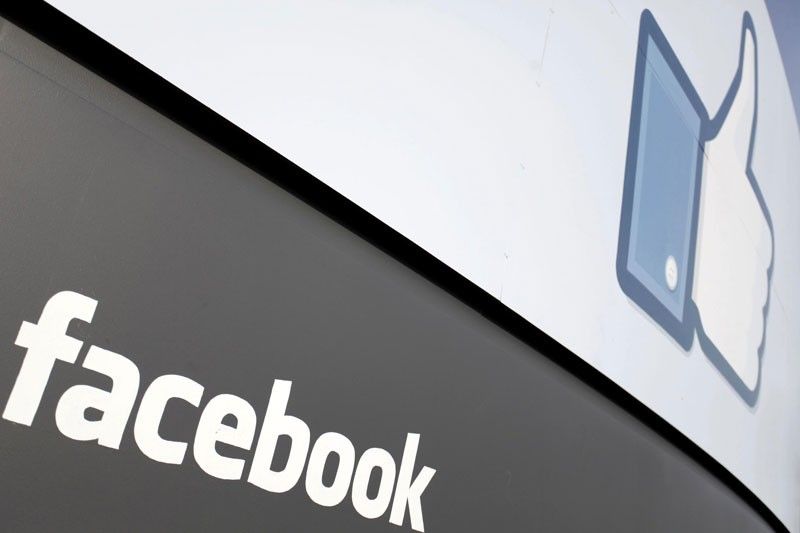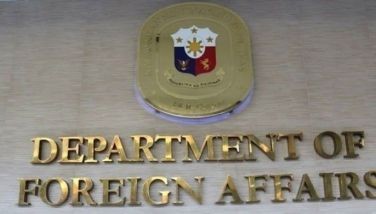Facebook urged to set up risk oversight committee

MANILA, Philippines – An institutional investor that wants Facebook to set up a risk oversight committee asked fellow shareholders on Tuesday to back the proposal, highlighting investor concerns over the company’s handling of controversies such as the recent data privacy row.
Trillium Asset Management, which owns about 73,000 shares of Facebook Inc., said existing risk oversight structures at Facebook appeared to lack a “dedicated focus.”
Facebook has faced public outcry and intense political scrutiny since it was disclosed that the personal information of several millions of users, including that of 1.18 million Filipinos, was harvested by the political consultancy Cambridge Analytica.
Menlo Park, California-based Facebook has also been criticized for its role in Russia’s alleged influence over the 2016 presidential election in the US.
“The sheer volume, magnitude and frequency of Facebook’s controversies strongly suggests that the company’s whack-a-mole approach is insufficient – Facebook needs to institutionalize stronger risk oversight mechanisms,” Trillium said in a letter to fellow Facebook shareholders.
Trillium’s proposal first came in a regulatory filing on Friday. Facebook, at the time, appeared to oppose the proposal, saying it would be inefficient to form a separate oversight committee, given that many of its board members were already overseeing risk-related matters.
“We believe that our board and committees have sufficient time and resources to address risk oversight matters along with their other responsibilities,” Facebook had said.
A Facebook spokeswoman maintained that response on Tuesday.
The social networking giant’s lack of attention to risk management has eroded shareholder value, Trillium said, pointing to Facebook’s warning last week that new investments in security will “significantly” impact future profits.
Facebook has lost nearly $47 billion in market value since the Cambridge Analytica revelations first surfaced last month.
Blocked fake news sites
Facebook confirmed Wednesday that it blocked several Philippine fake news websites due to “spammy” content that violate its community standards.
In a statement sent to The STAR, Facebook said that the websites were blocked by the platform’s anti-spam system and not by its recently launched fact-checking initiative in the Philippines.
“Our anti-spam system is designed to catch and remove bad content and affiliated accounts before they ever reach people on Facebook. When we catch spammy activity, we work to counter and prevent it from being shared on our services, including blocking accounts, removing content and stopping spammy links from being shared,” said Facebook.
“These links were blocked in March 2018 for violating our spam policies and are unrelated to the fact-checking product, which was recently rolled out in the Philippines,” it added.
The STAR over the weekend reported the blocking of some websites known to have previously published fake content, including Duterte News Today, Duterte News Info, FilipiNews, HotNewsPhil and PhilNewsPortal. These sites were in the fake news websites lists of the Catholic Bishops’ Conference of the Philippines and online encyclopedia Wikipedia.
Facebook blocked the websites before it rolled out its fact-checking initiative in the country, which was criticized by the Duterte administration because of the involvement of media organizations Rappler and Vera Files.
Presidential spokesman Harry Roque Jr. questioned the choice of the two organizations, citing their partisanship and apparent bias against the government.
Both Rappler and Vera Files affirmed their commitment to upholding fairness and non-partisanship in conducting fact-checks, noting that this is one of the principles of the International Fact Checking Network (IFCN) that they are part of.
Facebook this week said that they are open to accepting more partner organizations in the Philippines provided that they become signatories to the Poynter Institute’s IFCN code of principles.
“At Facebook, we want to work with as many organizations as possible and we welcome other partners in the Philippines to become certified and to join the fact checking program,” the company said.
“Poynter is internationally recognized as the leading convener, teacher and community-builder for fact-checkers around the world… In the Philippines, Rappler and Vera Files are the only two who are Poynter certified at this point,” it added.
According to Facebook, they have dedicated teams and tools in their system to protect people from spam, or unwanted content such as bulk messages, malicious links or requests from unknown accounts.
It said spam is sometimes spread through clicking on bad links or installing malicious software, as well as when scammers gain access to people’s Facebook account.
“Most people rarely come into contact with spam or other low-quality content on Facebook, but we’re constantly working to make our services even better,” said Facebook.
- Latest
- Trending






























